The increasing availability of data to the public and the press is rapidly transforming journalism, a group of prominent international journalists and journalism educators said June 13 during a conference at Tsinghua University.
The fifth annual international business journalism forum, entitled “Data and Business Journalism” was organizedby the Tsinghua School of Journalism (GBJ) and Communication in partnership with the International Center For Journalists, Bloomberg News and the Reuters News Research Center.
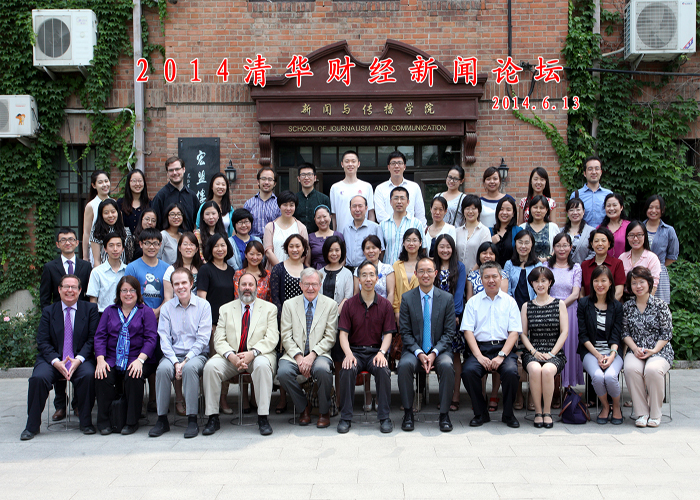
Reporters who understand data and spread sheets are “an incredibly valuable asset in every newsroom,” said Andrew Leckey, President of the Reynolds National Center for Business Journalism at Arizona State University in the United States. “Almost every journalism team has at least one person familiar with data.”
More than 60 Chinese scholars and business journalists attended the forum, which featured presentations by academics including Professor Leckey, Professor Robert Picard, Director of the Reuters News Research Center at the University of Oxford in Great Britain,Professor Michael Shanahan,Assistant Director of the School of Journalism and Public Affairs at George Washington University in Washington, D.C.,Professor Wang Qing, Deputy Dean of the School of Journalism and Communication at Beijing Technology and Business University, Professor Tan Yun Ming of the Central University of Finance and Economics in Beijing and Professor Rick Dunham, Co-Director of the Global Business Journalism program at Tsinghua University.
“There is so much information available in the world, but so few people looking into that information and what it means,” Dr. Picard said. “It is relatively easy to turn data into information, but turning data into information that people can use is more difficult, and not all journalists can do it.”
The best data journalists are “very special people who can use information in varied ways,” he added.
Some of those “very special people” in the journalism business were on hand at the Omnicom Building to explain how they identify, analyze and visualize data, and how journalism professors can teach their students to harness the power of “Big Data.” Among the news professionals speaking to the participants were Xiao Zhensheng, Director of Economics for China Central Television, John Liu, Managing Editor of Bloomberg News for China, Wu Liang, Chief Editor of National Financial Weekly, Pam Tobey,a multimedia journalist at theWashington Post, Henry Sanderson,a data journalist for Bloomberg News, and LanLan, a financial journalist fromChina Daily.
Xiao Zhensheng said CCTV has taken advantage of a wealth of economic data now available in China.
“There is more accessible data; it’s not like it was in the past,” he said. “Now, the data are more public-oriented. They are more open to the public.”
Professor Shanahan cautioned that data alone will not transform journalism.
“It is a very important tool,” he said, “but you need the fundamentals (of basic journalism skills).”
At the forum’s opening ceremony, Professor Baoguo CUI, Director of Tsinghua’s Center for Media and Management and Economics Studies, pointed out that journalists around the world areconfronting how to use databases and to improve business reporting. He said he hoped the forum would provide deeper discussion and better context for the issue.
Professor Picard’s keynote speech – “Data Journalism and Business Reporting” --illustrated the positive energy brought by data journalism, the advantages of using databases in business reporting and preparations nes organizations should be making to improve their business reporting.
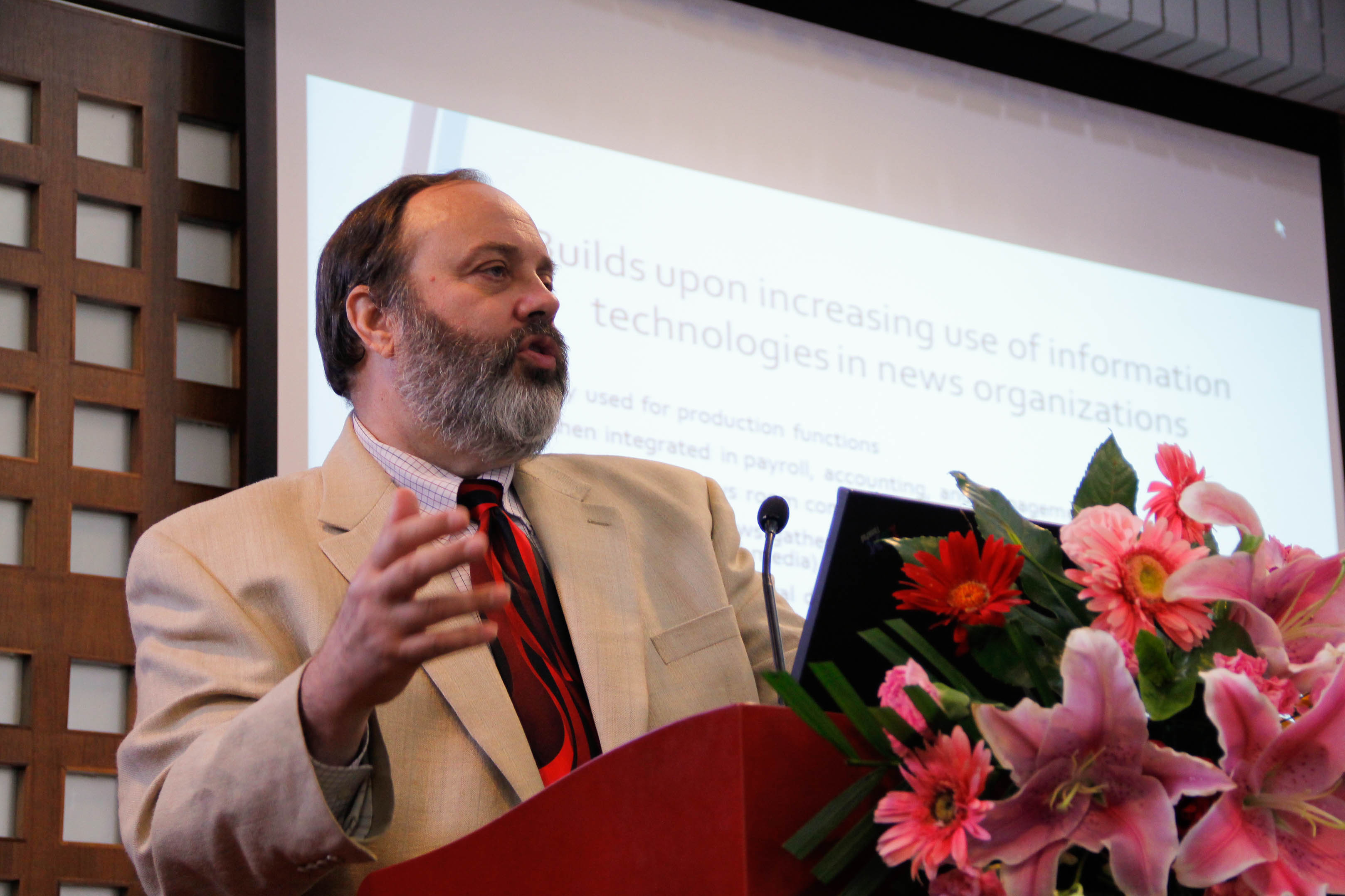
http://www.tudou.com/programs/view/PuaLh2t2fcY/
Professor Shanahan’s speech – “Journalism: Change, Pain and Digital Storytellers of the Future” --pointed out that digital technology has had the greatest impact on traditionalprint publications and television, which has led to a sharp fall in profits for newspapers.
Print media is doomed to disappear, he predicted, adding that the future of the news media should be data journalism, visual news and paid digital news.
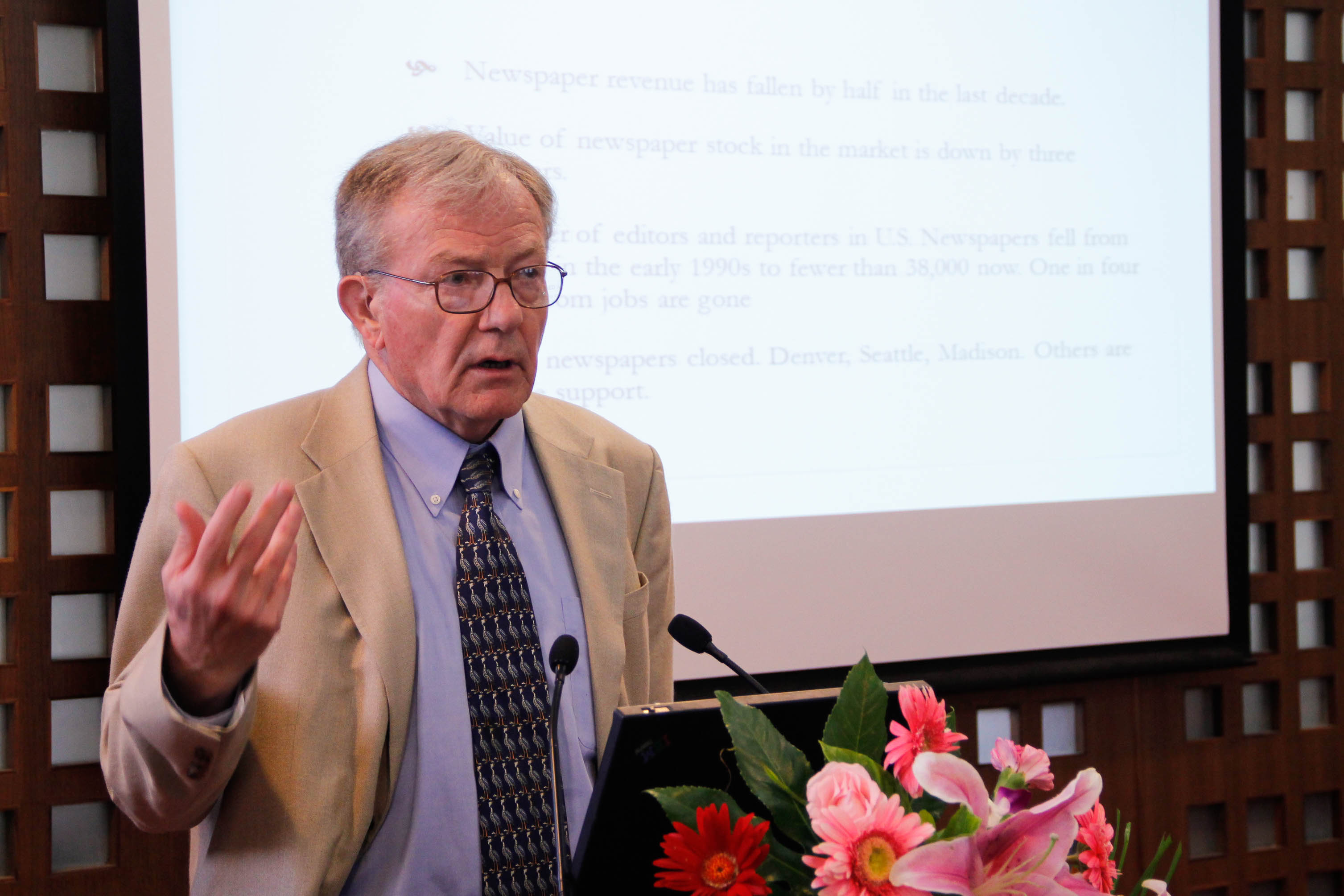
http://www.tudou.com/programs/view/IpGJmk0aWdk/
http://www.tudou.com/programs/view/ycSzeN-Bxnk/
John Liu’s speech – “Data Journalism at Bloomberg” –explained through several case studies how Bloomberg News uses data to report and analyze the news.
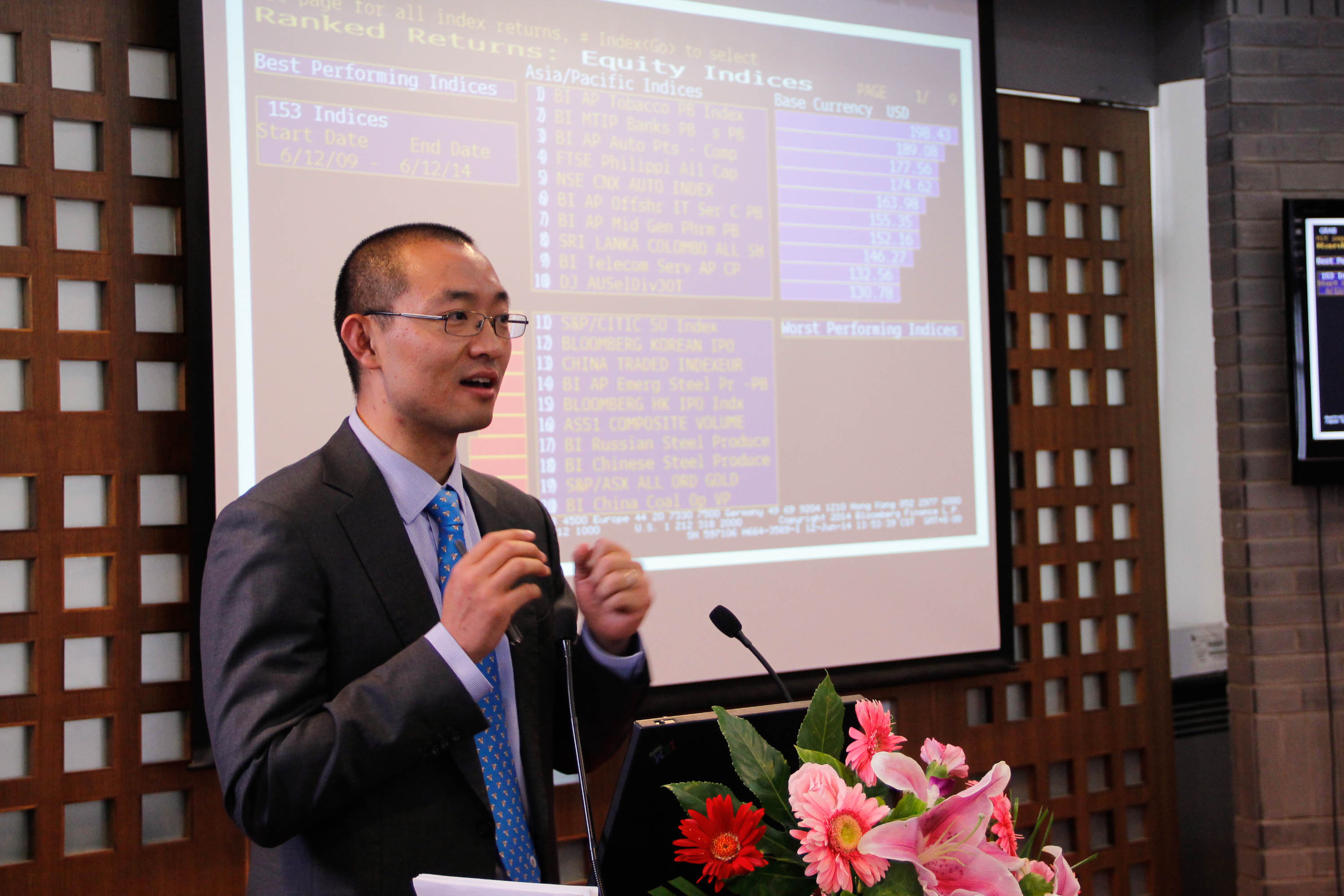
http://www.tudou.com/programs/view/rs0Lnn079FI/
Professor Leckey’s speech – “Data in financial news: Youth and technology” -- focused on the contributions made by young journalists in business reporting.
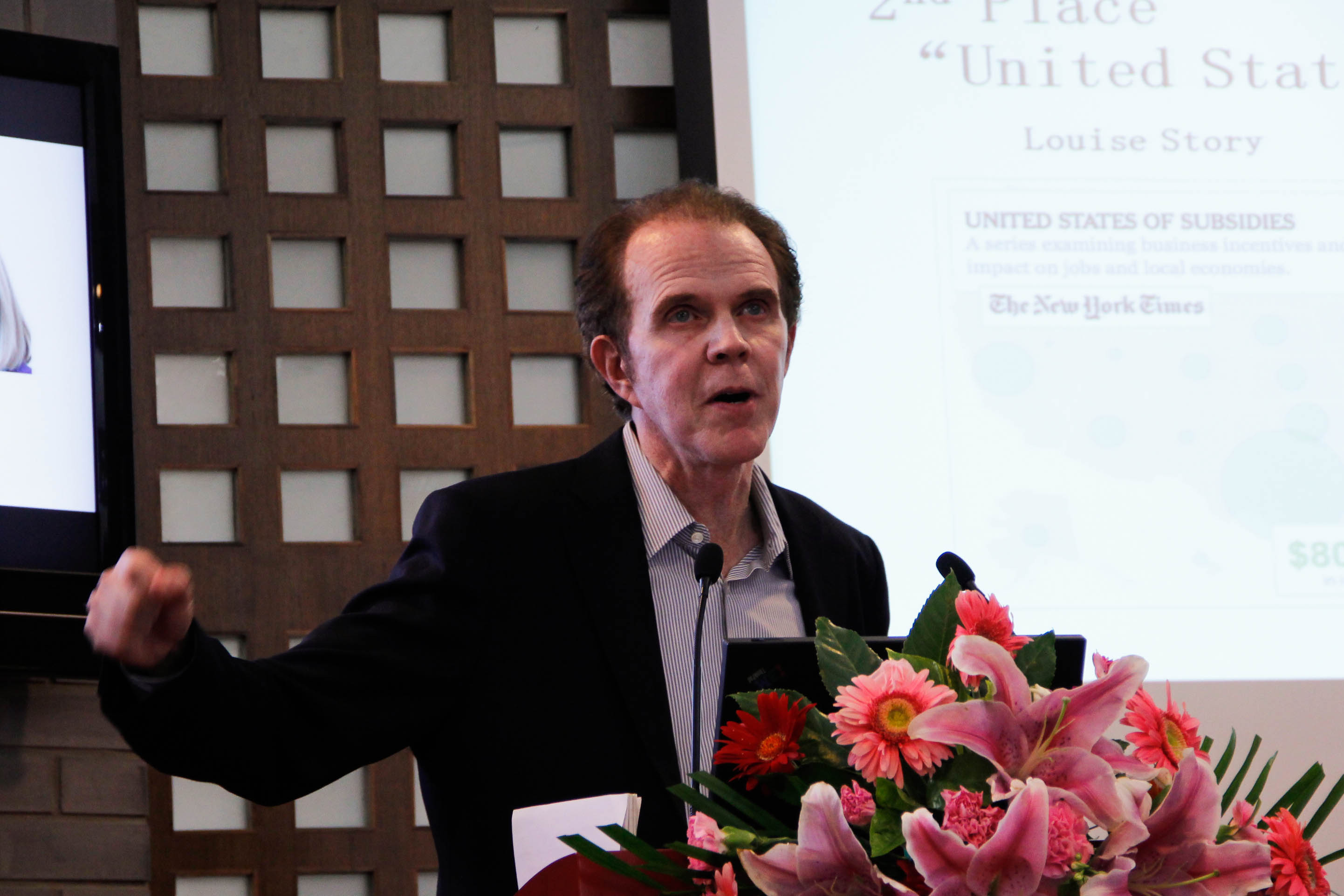
http://www.tudou.com/programs/view/CvVXCXFTIac/
During the afternoon session, sevenguest speakers discussed the state of data journalism and business journalism education.
Pam Tobey discussed a series of case studies from the Washington Post and described how the Post presents data visually. Among her examples were stories about U.S. pharmaceutical company price-gouging, the Wall Street financial crash, the European debt crisis and the disappearance of a Malaysian airliner. Graphics and data can supplement other news coverage, she said, but sometimes stand alone as stories themselves.
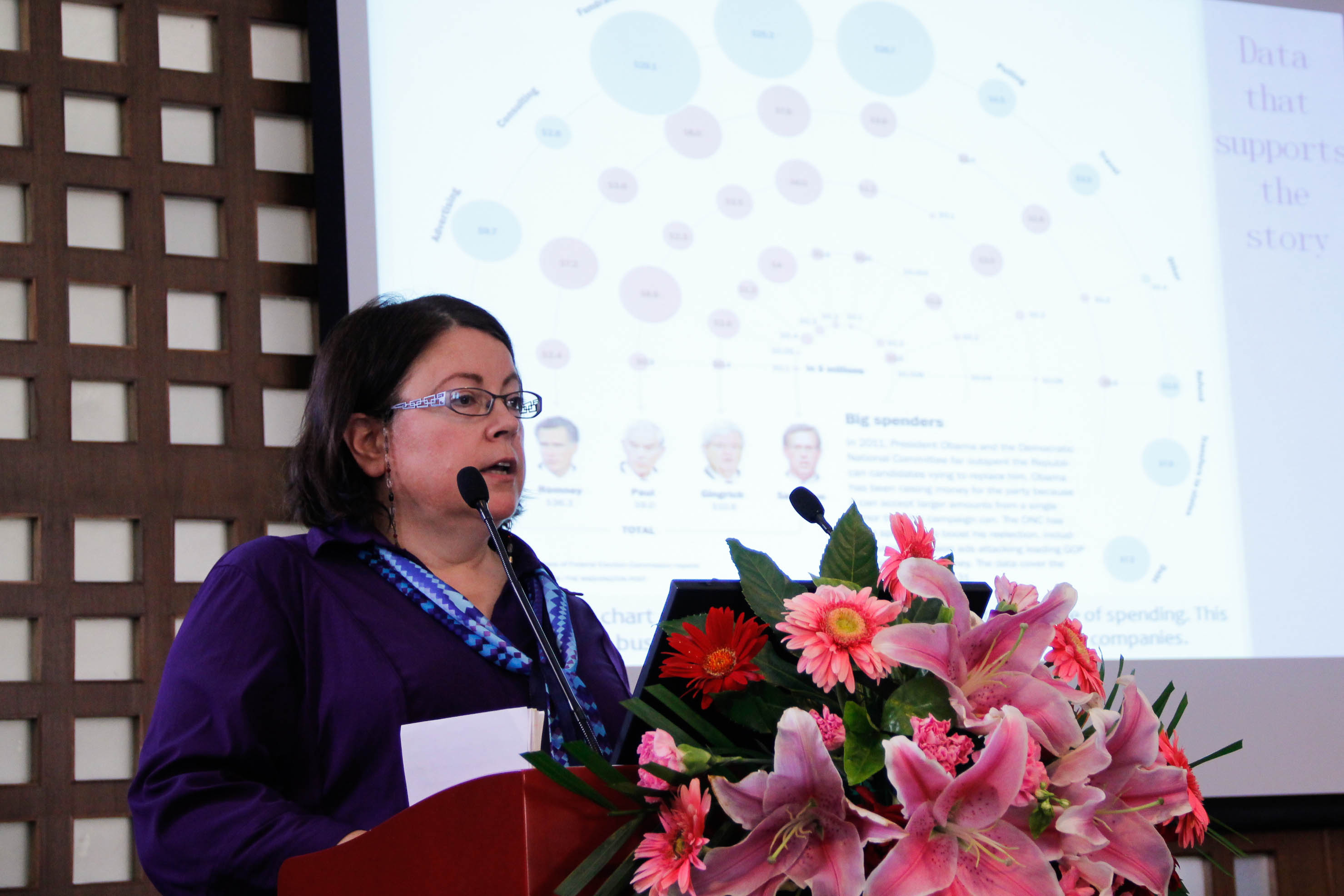
http://www.tudou.com/programs/view/leH0dl-BUG4/
Wu Liang explained the journalistic application of data and “the rise of data media.” Henry Sandersonfocused on data journalism in China, saying that publicly available should be used to build news stories. LanLan presented case studies from China Daily to illustrate the importance of using data.
Professor Rick Dunhamdescribed how ICFJ was working with journalists in Asia, Africa, Latin America, Europe and the United States on more than a dozen digital journalism initiatives that rely on data.
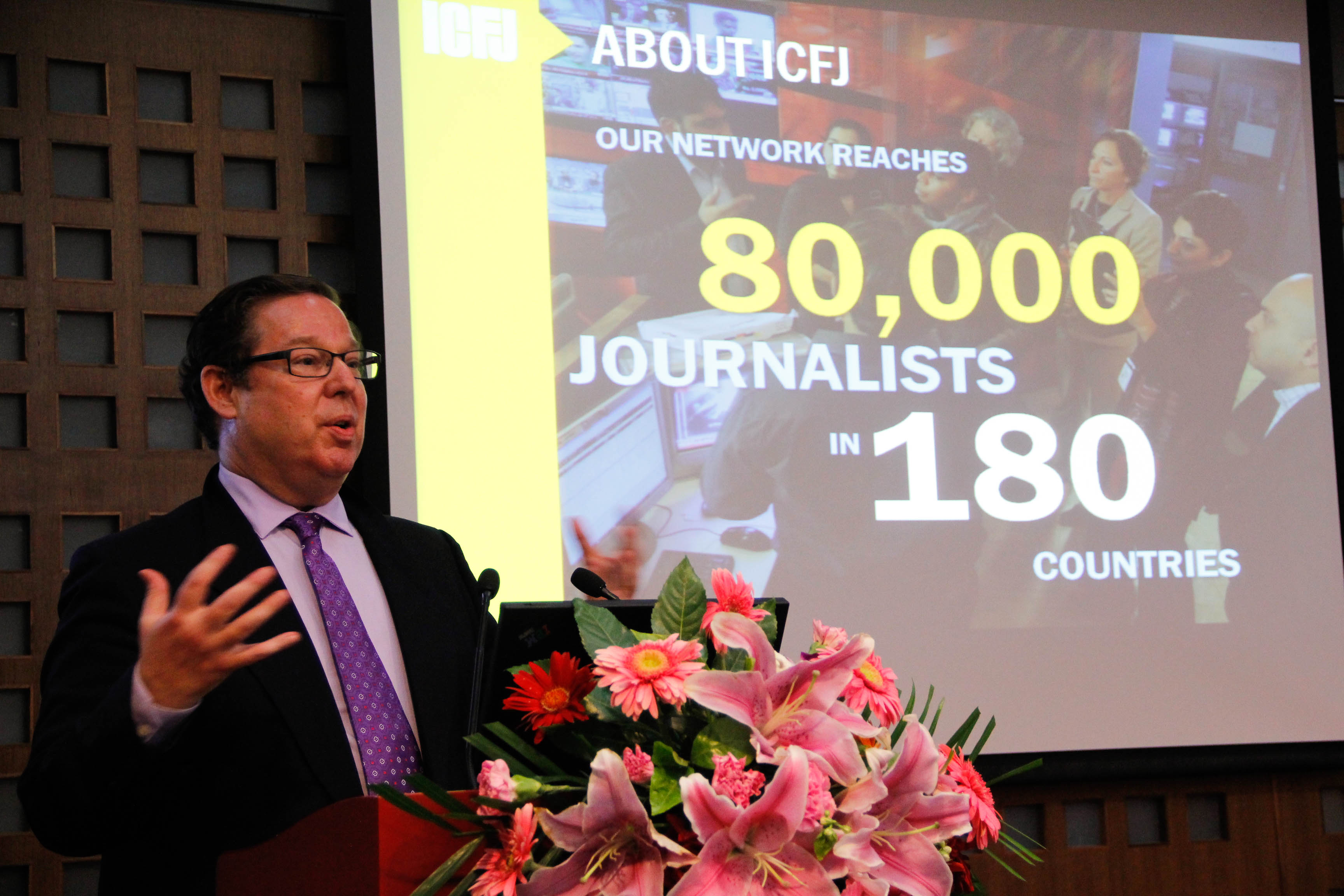
http://www.tudou.com/programs/view/DNyX8TXHy1s/
Professor Wang Qing presented an overview of the current situation of the study of data journalism in Chinese universities. He stressed the importance of a spirit of being open, sharing and enhancing cooperation.
Professor Tan Yunming told participants that data is the lifeblood of journalism, and said thatbusiness journalism should seek high standards for teaching materials and teacher training.
Professor Min Hang, co-director of the Tsinghua Global Journalism program concluded the forum by summarizing the speeches, and she proposed an agenda for future collaboration with the industry and universities home and abroad to further strengthen the role of Tsinghua in setting business journalism education standards. (by Wang Dier)

